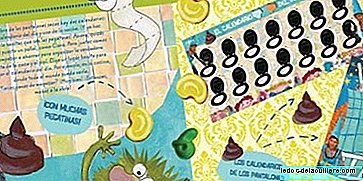
We call puerperium the first six weeks after delivery. The puerperal period is a stage of great changes in our bodies, since all the organs involved in pregnancy and childbirth return to their previous state. For this reason, it requires some care and vigilance, as some inconveniences may arise.
Next we will explain the frequent complications of the puerperium that require medical consultation.
Fever of 39 ° C or more: may be indicating infection in the area of the episiotomy or caesarean section, as well as a mastitis (infection in one or both breasts). Consult the doctor if the fever is 39ºC or more and if it persists for more than 24 hours. It is common to have a fever with the drop in milk, but it never lasts more than 24 hours.
More intense vaginal bleeding than you have been experiencing: check immediately if the bleeding is severe, if you notice a foul odor on it, or if the clots are large. Hemorrhages are normal after the third or fourth day after delivery; In the beginning, the bleeding is deep red to change color until it disappears around the month.
Intense pain in the lower belly: consult a doctor if the abdominal pain is persistent after 5 days after delivery. The pain in the lower belly is normal, since the uterus is becoming comfortable and returning to its natural size, but if the pain is intense it may be indicating that the placenta has not been fully expelled. Also check if there is redness of the caesarean section or abnormal pain at the site of the episiotomy.
Redness and hardening, swelling or heat of one of the breasts, accompanied by discomfort and fever: consult a doctor because they can be signs of mastitis or some obstruction in the lactiferous duct. Hot compresses and massages in the area help relieve pain until you contact the doctor.
Severe pain in the calves, thighs or chest: if the pain is in the chest and is accompanied by shortness of breath, call medical emergencies immediately; If your calves or thighs hurt and you feel localized heat or redness you may be suffering from phlebitis (infection in the veins), consult your doctor.
Burning when urinating or pain when having a bowel movement: consult your doctor if you feel burning or burning when you urinate or if you have a need to urinate frequently; These symptoms, associated with a very dark color in the urine may be indicating urinary infection.
Lack of sleep, loss of appetite or sudden mood swings: consult a doctor if emotional symptoms are disturbing the normal development of life in common with your baby. It is normal for you to feel discouraged during the first two weeks after delivery (we have already talked about Baby Blues or mild postpartum depression here); If the signs intensify or last beyond 15 days after delivery, they may indicate depression and you will need specialized treatment.
More information: E-health












